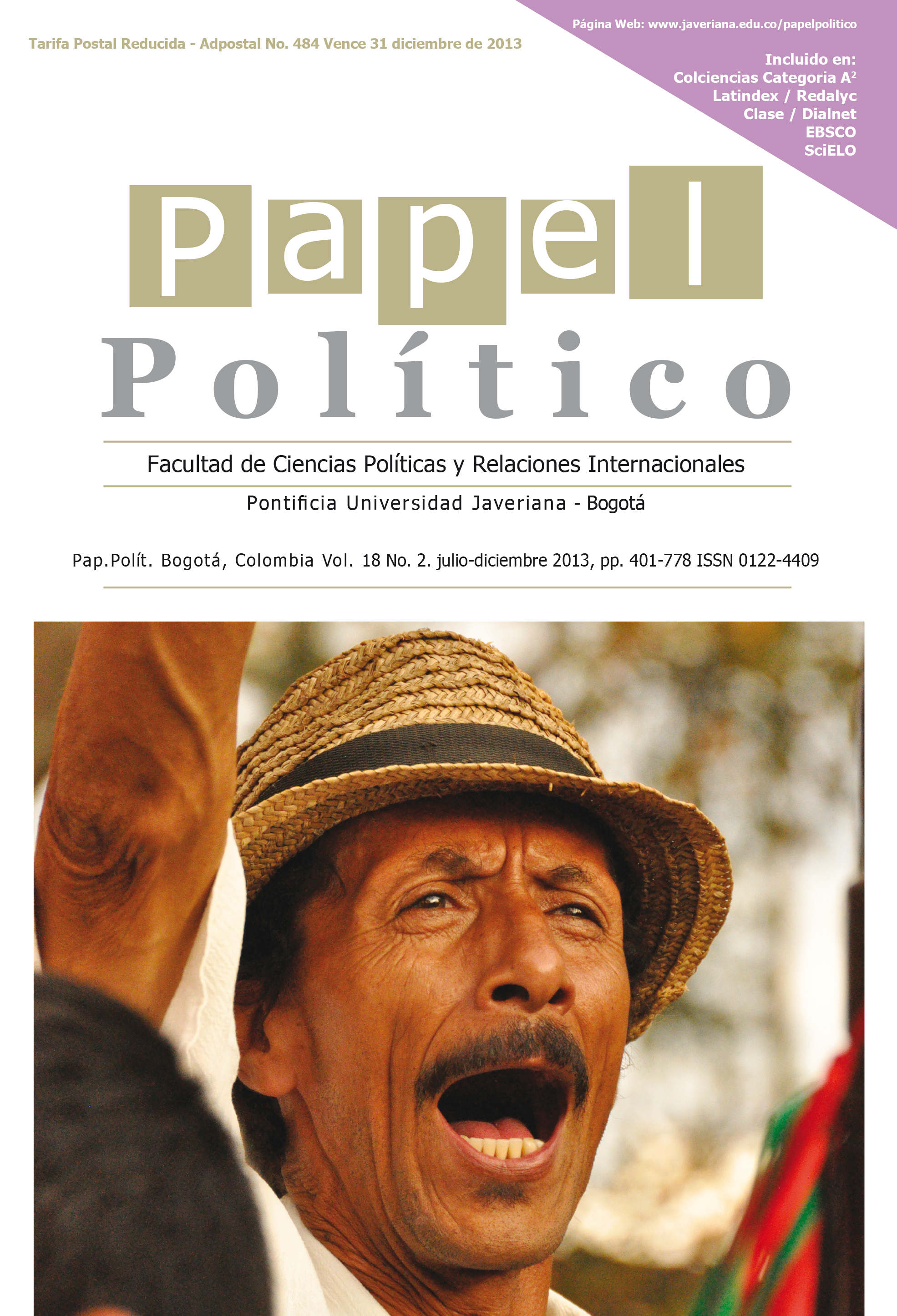Resumen
En contextos sociales afligidos por altas intensidadesde conflicto y violencia, las comunidades afrodescendientes, campesinas e indígenas en Colombia han dado diferentes significados propios a la resistencia civil que responden a las necesidades de los contextos determinados y las distintas formas de violencia que los aquejan. La región del Cauca se distingue por su tradición de organización indígena y por su resistencia contra los terratenientes y el Estado. La resistencia civil para el movimiento indígena es ejercicio de autonomía e incluye varios elementos como la participación comunitaria y política, la GuardiaIndígena y las asambleas permanentes. Debidoal trabajo de organización, las comunidades son capaces de dar una respuesta organizada frente a situaciones de combate en la zona. La Guardia Indígena está controlada por las autoridadesindígenas, y nace por la necesidad de preservar la integridad y autonomía del territorio y defender los derechos de los pueblos indígenas,respetar y difundir la cultura y el derecho autóctono. Frente a la guerrilla, la Asociación de Cabildos del Norte de Cauca reconoce que esta ha sido históricamente otra forma de resistencia al Estado y defensora de los derechos de los pueblos indígenas y le demanda respeto a su cultura, costumbres, tierras y territorios.Esta revista científica se encuentra registrada bajo la licencia Creative Commons Reconocimiento 4.0 Internacional. Por lo tanto, esta obra se puede reproducir, distribuir y comunicar públicamente en formato digital, siempre que se reconozca el nombre de los autores y a la Pontificia Universidad Javeriana. Se permite citar, adaptar, transformar, autoarchivar, republicar y crear a partir del material, para cualquier finalidad (incluso comercial), siempre que se reconozca adecuadamente la autoría, se proporcione un enlace a la obra original y se indique si se han realizado cambios. La Pontificia Universidad Javeriana no retiene los derechos sobre las obras publicadas y los contenidos son responsabilidad exclusiva de los autores, quienes conservan sus derechos morales, intelectuales, de privacidad y publicidad.
El aval sobre la intervención de la obra (revisión, corrección de estilo, traducción, diagramación) y su posterior divulgación se otorga mediante una licencia de uso y no a través de una cesión de derechos, lo que representa que la revista y la Pontificia Universidad Javeriana se eximen de cualquier responsabilidad que se pueda derivar de una mala práctica ética por parte de los autores. En consecuencia de la protección brindada por la licencia de uso, la revista no se encuentra en la obligación de publicar retractaciones o modificar la información ya publicada, a no ser que la errata surja del proceso de gestión editorial. La publicación de contenidos en esta revista no representa regalías para los contribuyentes.


